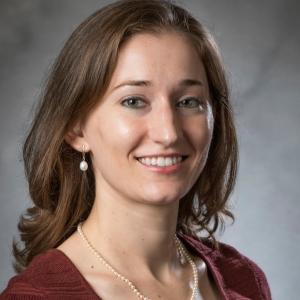
Header image: A photo of "Language of Autism" by Laura Benzing. The visual piece, made with laser-cut birch and mixed media, was an activism project created for Disability Pride Week 2018 and submitted as part of Dr. Marion Quirici's Writing 101: Neurodiversity, Narrative, Activism course.
On this day (July 26) in 1990, the Americans with Disabilities Act (ADA) was passed and signed into law, legally prohibiting discrimination on the basis of disability. The anniversary of this historic moment provides an opportunity to reflect on the state of disability justice today, especially here at Duke, and to highlight the exciting, ongoing work of students, faculty, and staff as it relates to disability. Read on to learn how the Duke community continues to push well beyond legal codes—viewing disability through the multiple lenses of academic study, advocacy, community, and culture.
The Pre-Pandemic Push for Disability Studies
Organizing around disability and disability studies is alive and well at Duke today—in large part because of momentum gained before and during the COVID-19 pandemic.

While she has since moved on to an assistant professorship at Kennesaw State University, Dr. Marion Quirici was a pivotal force in helping grow this momentum during her six years here. She first came to Duke in 2016, teaching disability studies writing courses for the Thompson Writing Program (TWP).
“Disability studies is a really interdisciplinary field, so I was able to design my Writing 101 courses very flexibly and coach students in many different disciplines,” says Dr. Quirici. “A lot of my students started initiatives of their own: there was one group of engineering students that started a group on universal design and tried to make an impact on the inaccessibility of Duke's campus; another one of my students was part of starting Duke’s student ASL Club.”
In her first year on campus, Dr. Quirici became the faculty advisor to the Duke Disability Alliance (DDA) and helped organize their Disability Pride Week.
“Being advisor for DDA was really rewarding,” says Dr. Quirici. “You might have seen the Disability Community Space that's in the Bryan Center, which was the work of DDA students over the years. It opened during COVID, so without much fanfare; but just having at least that visibility on campus counted for a lot.”
Dr. Quirici also created the Disability & Access Initiative (DAI) with the help of Dr. Ashley L. Elrod, who was then a graduate student in Duke’s History Department.
“We knew that there were lots of people at Duke with various interests in disability. We thought we could take advantage of that, and have sort of a cross-disciplinary collaboration where folks were learning more about the field and incorporating those insights into their classes and research projects,” says Dr. Quirici.
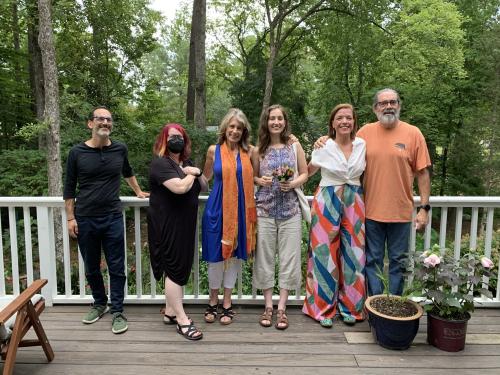
With funding from the Franklin Humanities Institute’s Health Humanities Lab, which Dr. Quirici then co-directed, the Disability & Access Initiative organized the 2019 Disability in the Disciplines Conference, which included a student expo, a panel of disability justice community leaders, academic panels across disciplines, and a keynote by Dr. Lennard Davis.
“I'm proud of the community that we were able to build over the years that I was there. I'm super excited that it still exists, although in different forms, and continues to change and shift,” says Dr. Quirici. “I think that's actually a really good sign. It's developing in all sorts of different directions.”
Present-Day Advocacy and Affinity Groups
Duke Disability Alliance
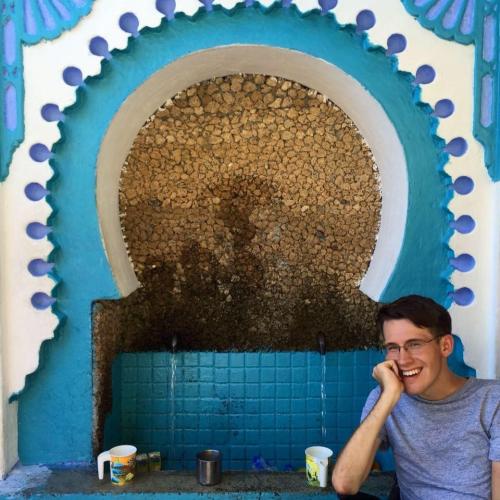
A rising fifth-year Ph.D. student in art history, Bryan Rusch is one of many collaborators on campus who have kept the torch for disability justice burning. A long-standing member of DDA, Rusch served in 2022-23 as the inaugural graduate assistant for the Disability Community Space. That position shifted location and focus in 2023-24, allowing Rusch to serve as a Disability Studies Graduate Fellow, funded by the Dean of Academic Affairs and housed in the Duke Human Rights Center at FHI.
Rusch first got involved with DDA as an undergraduate in 2018 and was active in the push to establish disability studies as an academic discipline at Duke. He ultimately decided to pursue his Ph.D. at Duke as well, beginning his program in August 2020 amidst the COVID-19 pandemic.
“I've been disabled my entire life. I’m a wheelchair user with a neurodegenerative disease called spinal muscular atrophy,” says Rusch. “And I'm also from a rural part of North Carolina originally, so I've been coming to Duke Hospital my entire life for specialist care.”
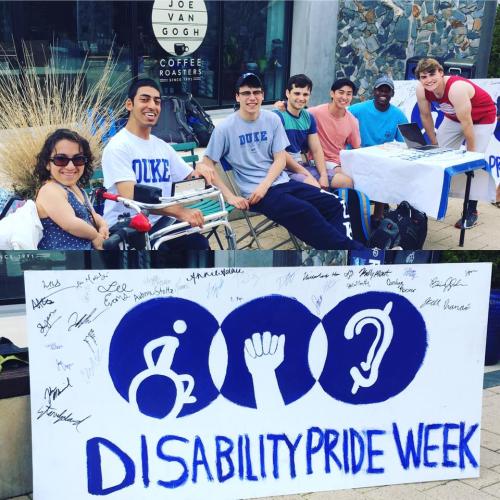
“When COVID came around, it was one of those things: I could try picking up and going to another city or doing an industry thing, but this academic pathway was open to me. And I do value the continuity of care, of staying in the same area with familiar connections during something like COVID, so I decided to stay here,” Rusch adds.
Through the pandemic, Rusch stayed involved in community organizing in and outside of DDA, making sure that both graduate and undergraduate students with disabilities had access to care pods and weren’t feeling isolated. He also began conducting trainings around disability for various units at Duke.
“One of the most recent trainings I've done is with Duke Rec about creating comprehensive communications plans for people with disabilities around accessible physical education—sort of navigating the challenges and the entangled, messy history that disability and physical fitness can have with one another,” says Rusch.
Rusch works closely with Dr. Jules Odendahl-James, DDA’s faculty advisor since 2022 and the current director of engagement for Duke Arts.
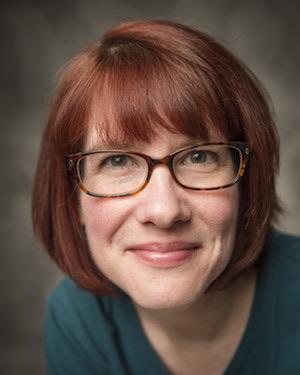
“In my own adjunct faculty work, I have taught classes in the medical humanities, and that was my orientation to disabilities studies,” says Dr. Odendahl-James. “Disability studies is related to the medical humanities, but it is its own, unique scholarship. I wanted to know more and teach more about disability as opposed to this notion of empathizing with the patient experience, a patient who sits in a dependent relationship to the authority of health professionals.”
Odendahl-James says she also wanted to be an advocate for students and that she was heavily influenced by her collaboration with Dr. Quirici and the Disability & Access Initiative. Her appreciation for the nuances of disability continues to grow through her work as an administrator.
“I think that the student community wants to figure out what it means to be a community that is coming together, across shared but distinct experiences, under the umbrella of disability. And in ways that go beyond, ‘Who do we have to write a letter to in order to get our accommodations and our accessible spaces?’” says Dr. Odendahl-James. “Then the community can be a community, which will still always include some level of advocacy but can hopefully count on informed and supportive institutional structures to help shoulder some of that work.”
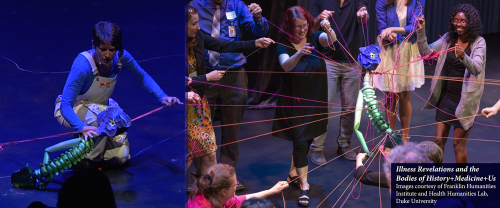
Disability Inclusion and Community Empowerment Affinity Group
While DDA is a student-led organization, the newly-launched Disability Inclusion and Community Empowerment affinity group (DICE) serves staff and faculty across Duke University and Duke University Health System. An offshoot of DAI, which concluded last year, DICE is focused primarily on accessibility at Duke as an institution of higher education.
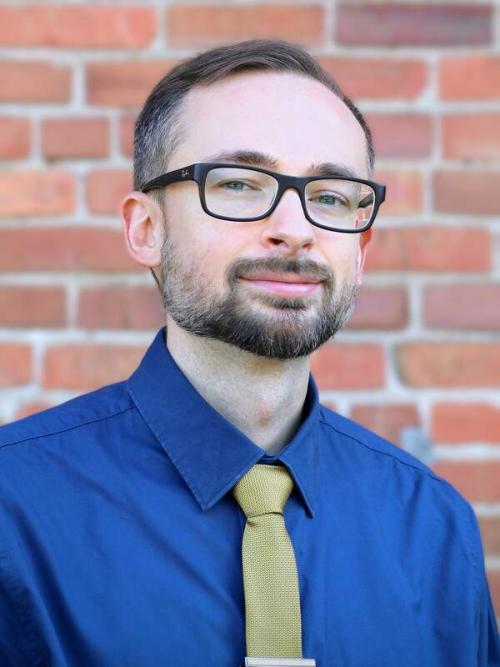
Zachary Tumlin, who serves as secretary and treasurer for DICE, is the project archivist for the Mary Duke Biddle Trent Semans family papers at the Rubenstein Library. He started at Duke in February 2022.
“I was heavily involved in disability self-advocacy as a graduate student at the University of Maryland, including serving on a student subcommittee of the President’s Commission on Disability Issues (PCDI),” says Tumlin. “I did not find anything like PCDI at Duke—a campus group for Disabled faculty and staff and their allies—so starting what has now become DICE became a goal of mine.”
“I am an adult-diagnosed Autistic who was diagnosed in 2016 after resigning from my previous job. I focus on inclusive employment and workplace accessibility because of my lived experiences,” says Tumlin.
When asked for his thoughts on the ongoing Disability Pride Month, Tumlin offered some reflections on the meaning of Disability pride.
“You do not have to always love all the ways in which your disability manifests, but you do have to love yourself as a Disabled person and realize that it connects you to a community and culture. Disability pride remains the hardest form of pride to cultivate because society, medicine, and the built environment still regularly communicate to Disabled people that their disability is their fault and their responsibility to accommodate and that everyone’s lives would be easier if they were not Disabled. It is a eugenicist message and tough for those of us who do not know who we would be without our disability.”
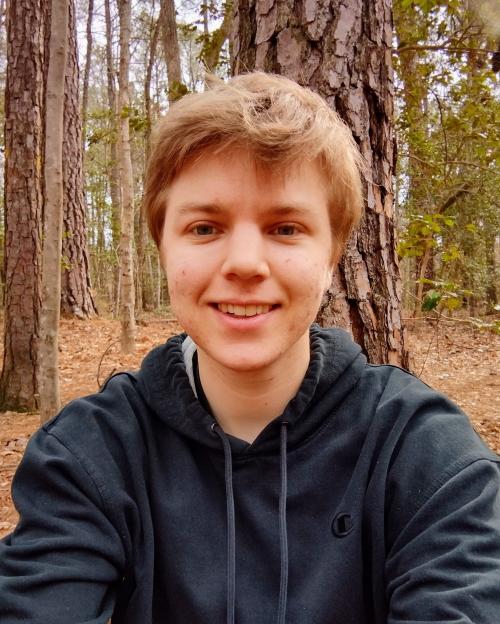
Like Tumlin, Dr. Sam Brandsen, who co-chairs DICE alongside Dr. William F. Malcolm, is likewise committed to autism advocacy and inclusion. He started at Duke as a Ph.D. student in Physics and now works at the Duke Center for Autism and Brain Development, studying quality of life in neurodivergent individuals.
“My child was born when I was in the second year of my Ph.D.—he was premature and initially had many medical appointments, and was identified as autistic when he was 18 months,” says Dr. Brandsen. “I’m autistic myself and found there to be a sort of ‘double accessibility’ barrier. It was often challenging to find events or spaces for children that were accessible and welcoming of his neurodivergence; and even the events that did exist were not always prepared for an autistic parent as well.”
“As cliché as it probably sounds, I do believe that kindness and a genuine openness to change and learning can go a long way,” Dr. Brandsen adds. “Having a general sense of community can be incredibly helpful—it can be the difference between feeling that you have permission to exist in a workplace or place of study versus feeling like you truly belong and are welcome.”
Neurodiversity Connections

Both Tumlin and Dr. Brandsen are in close camaraderie with Dr. Tara Chandrasekhar, who helped form Neurodiversity Connections at Duke. She has been on faculty in the School of Medicine and Department of Psychiatry since 2015, participating in research studies and clinical work around autism for much of that time.
“I also worked at Counseling & Psychological Services for seven years, which is really where I saw the need to have more conversations about neurodivergent students,” says Dr. Chandrasekhar. “With Neurodiversity Connections, we’re at a point now where we’re trying to formalize the work and make sure it’s available to undergraduate, graduate, and professional students.”
“At least half of the students involved have been graduate students, maybe more. The student who spurred some of this was a Ph.D. student, so I think that graduate students are a really important part of this,” says Dr. Chandrasekhar.
Neurodiversity Connections will be hosting its third NC Neurodiversity Career Summit this November, after taking the event over from NC State University. They also provide trainings for faculty and staff, create materials focused on using principles of universal design in the classroom, and support sensory-friendly events and spaces on campus through The Clubhouse and other initiatives.
“I think the more that we are in dialogue with our students about what their lives are like, and what the most current pressing challenges are, the more effective we'll be in this work,” says Dr. Chandrasekhar. “I think the anecdotes and personal insights and hearing students riff off of each other has made more of an impact than any compilation of data.
More on the Minor: Where Disabilities Studies Now Stands
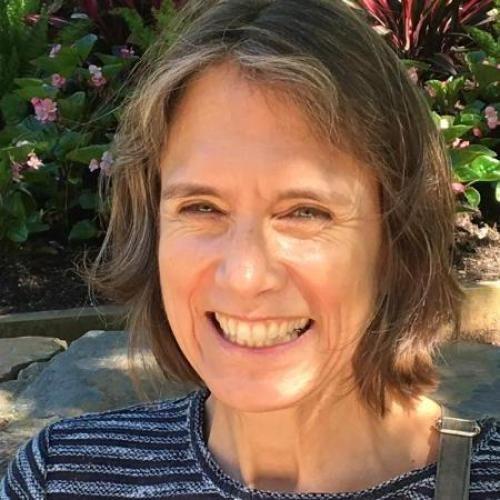
While DDA, DICE, and Neurodiversity Connections are taking up various facets of disability justice at Duke, the case for a disability studies minor at Duke is continued through academic activists like Dr. Jehanne Gheith, associate professor and chair of Slavic languages and literature.
Dr. Gheith says she got interested in disability advocacy at Duke because of the inaccessibility of the Languages Building, which remains in need of an elevator. Dr. Gheith also has a complementary intellectual interest in the field of disability studies.
“I’ve done most of my thinking in global disability studies—I'm a Russianist—and I do a lot of medical humanities because I'm also a medical social worker who has done a lot of work with Hospice,” says Dr. Gheith. “So, I'm also interested in the intersection of health humanities and disability studies, and I think they lend a lot to each other.”
“Part of what led me to it was Dr. Quirici’s faculty group on Disability Studies and the discussion, which helped open my eyes to what an important issue this is—and why is it that when we talk about diversity, equity, and inclusion at Duke, we don't talk about disability studies?” Dr. Gheith adds.
While the initial proposal was for a combined disability studies and health humanities minor, Dr. Gheith recognizes that those currently involved may want to separate disability studies—which is its own field, with its own history—from health humanities, but that she also sees the value of keeping them together. She’s hopeful that, if approved, a new working group funded by the Franklin Humanities Institute can help determine the minor’s ultimate direction.
“My hope is that out of the working group will come a workable vision for the minor, and I think we’re in some ways back to the drawing board,” says Dr. Gheith. “It needs to be what the faculty who are here now want to make it.”
Carrying It Forward: Disability Research and Resources
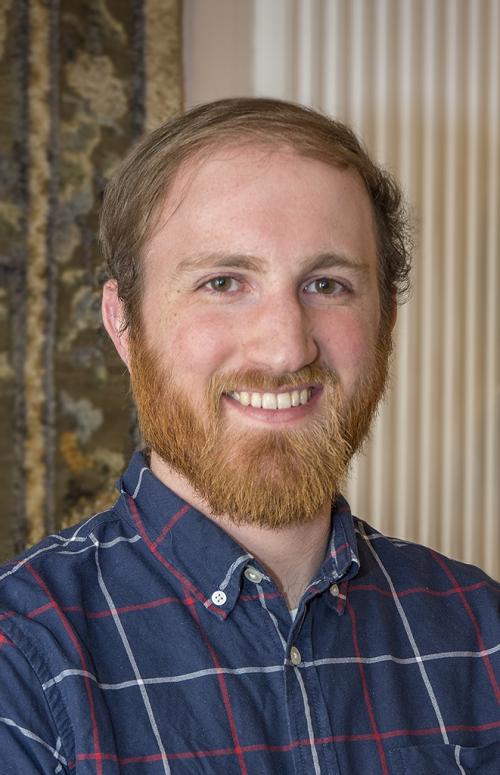
For those looking to learn more about the field, Librarian for Disability Studies Ira King has set up the Duke University Libraries’ first disability studies research guide, which includes reference sources, tips for searching through books, articles, statistics, and primary sources on disability, and local resources (at Duke and beyond) for people with disabilities.
“From an academic perspective, the field is growing and moving really quickly. There are some fields that have maybe been around longer, and things feel a little more calcified or rigid,” says King. “But disability studies is so interdisciplinary, and there's a lot of energy and innovation. There are just so many different ideas and angles.”
King also extends an open invitation for students, faculty, and staff to reach out to him, either for a research consultation or to recommend any relevant published materials that Duke does not yet have in its possession.
“We are super fortunate to have a university affiliation with Duke University Press. We get all of their stuff. And that's great, because they publish really cutting-edge, interesting disability studies work,” he says.
Duke University Press recently published their annual “Disability Pride Month Reads” blog post, which includes a few recommendations from among their recent titles, along with a 30% off coupon code.
In addition, when asked for their own book recommendations around disability, those interviewed for this story provided the following list:

-
The Autistic Self Advocacy Network’s Loud Hands
-
Lennard J. Davis’ The Disability Studies Reader and Beginning with Disability
-
Jay Timothy Dolmage’s Academic Ableism
-
John Donvan and Caren Zucker’s In a Different Key
-
Sara Hendren’s What Can a Body Do?
-
Judith Heumann’s Being Heumann
-
Emily Ladau’s Demystifying Disability
-
David T. Mitchell’s The Biopolitics of Disability
-
Leah Lakshmi Piepzna-Samarasinha’s Care Work
-
Tobin Siebers’ Disability Theory and Disability Aesthetics
-
Steve Silberman’s Neurotribes
-
Alice Wong’s Year of the Tiger and her edited anthologies Resistance and Hope and Disability Visibility
And for those on campus in need of accommodations, accessibility services are available through Duke Athletics, Duke Health, the recently renamed Duke Access and Accommodation Services, and Human Resources’ Duke University Disability Program.
Wishing our students, faculty, and staff a meaningful Disability Pride Month!